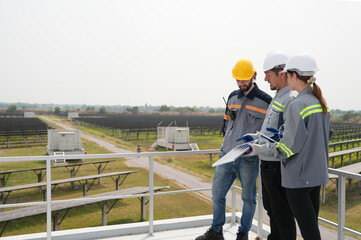- Role and Responsibilities: A Sustainable Agriculture Specialist is responsible for promoting and implementing sustainable practices in the agricultural sector. They work to minimize the environmental impact of farming operations, improve resource efficiency, and support long-term food security.
- Education and Skills: To excel in this role, a Sustainable Agriculture Specialist typically requires a bachelor’s or master’s degree in agriculture, environmental science, or a related field. They should possess knowledge of sustainable farming techniques, conservation practices, and understanding of agricultural systems.
- Sustainable Farming Techniques: A Sustainable Agriculture Specialist is well-versed in various sustainable farming methods such as organic farming, permaculture, agroforestry, precision agriculture, and integrated pest management. They help farmers adopt these techniques to reduce reliance on synthetic inputs and preserve natural resources.
- Environmental Stewardship: An essential aspect of a Sustainable Agriculture Specialist’s job is to advocate for environmental stewardship in agriculture. They assess the environmental impact of farming practices, develop strategies to mitigate negative effects, and promote conservation of soil, water, and biodiversity.
- Policy and Regulation: Sustainable Agriculture Specialists stay informed about relevant policies, regulations, and certifications related to sustainable agriculture. They provide guidance to farmers on compliance with environmental standards, agricultural best practices, and certification requirements for organic or sustainable farming.
- Farmer Education and Training: These specialists play a vital role in educating farmers about sustainable practices. They conduct workshops, training sessions, and field demonstrations to promote awareness and provide hands-on guidance on implementing sustainable techniques.
- Research and Development: Sustainable Agriculture Specialists often engage in research and development projects to advance sustainable farming practices. They collaborate with researchers, universities, and agricultural organizations to explore innovative solutions, improve productivity, and reduce environmental impact.
- Community Engagement: Building relationships with farmers, agricultural organizations, and local communities is crucial for a Sustainable Agriculture Specialist. They collaborate with stakeholders to foster sustainable farming networks, share knowledge, and support community initiatives related to sustainable agriculture.
- Data Analysis and Reporting: Analyzing data related to farming practices, resource utilization, and environmental impact is a key task for Sustainable Agriculture Specialists. They use this data to evaluate the effectiveness of sustainable practices, identify areas for improvement, and produce reports to showcase progress and outcomes.
- Evolving Field: Sustainable agriculture is a dynamic and evolving field, influenced by advancements in technology, climate change, and societal needs. A Sustainable Agriculture Specialist should stay updated with the latest research, industry trends, and emerging technologies to provide informed guidance and support to farmers.
A Sustainable Agriculture Specialist plays a vital role in driving the transition toward sustainable farming practices. Their expertise, advocacy, and collaborative efforts contribute to a more environmentally responsible and resilient agricultural sector.
Join 'Farmers Mag' WhatsApp Channel
Get the latest Farming news and tips delivered straight to your WhatsApp
CLICK HERE TO JOIN






